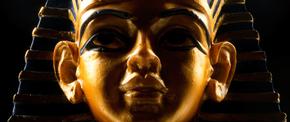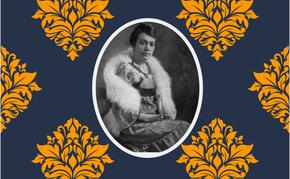The views expressed in our content reflect individual perspectives and do not represent the authoritative views of the Baha'i Faith.
How can we know if any of the theories of history are valid and useful? In general, a theory is an idea or proposal that can be tested by use of various proofs that demonstrate its accuracy or reveal its fallacy.
In a speech he gave in Paris more than a century ago, Abdu’l-Baha briefly described the revolutionary Baha’i theory of human history:
In the teaching of Baha’u’llah, it is written: “By the Power of the Holy Spirit alone is man able to progress, for the power of man is limited and the Divine Power is boundless.” The reading of history brings us to the conclusion that all truly great men, the benefactors of the human race, those who have moved men to love the right and hate the wrong and who have caused real progress, all these have been inspired by the force of the Holy Spirit.
The Prophets of God have not all graduated in the schools of learned philosophy; indeed they were often men of humble birth, to all appearance ignorant, unknown men of no importance in the eyes of the world; sometimes even lacking the knowledge of reading and writing.
That which raised these great ones above men, and by which they were able to become Teachers of the truth, was the power of the Holy Spirit. Their influence on humanity, by virtue of this mighty inspiration, was great and penetrating.
The influence of the wisest philosophers, without this Spirit Divine, has been comparatively unimportant, however extensive their learning and deep their scholarship.
For the sake of brevity, I’ll call this the theophanic model – because the word “theophanic” means “a visible manifestation of the Creator to humanity.” For Baha’is, all of the prophets, the holy messengers, and the manifestations of God founded the great religions and brought teachings of love, compassion, and unity to the human world. The Baha’i teachings say that these divine messengers are actually one:
Every Prophet Whom the Almighty and Peerless Creator hath purposed to send to the peoples of the earth hath been entrusted with a Message, and charged to act in a manner that would best meet the requirements of the age in which He appeared. God’s purpose in sending His Prophets unto men is twofold. The first is to liberate the children of men from the darkness of ignorance, and guide them to the light of true understanding. The second is to ensure the peace and tranquillity of mankind, and provide all the means by which they can be established.
The Prophets of God should be regarded as physicians whose task is to foster the well-being of the world and its peoples, that, through the spirit of oneness, they may heal the sickness of a divided humanity.
That passage from Baha’u’llah directly contradicts the contemporary view that history is the product of many transient social and cultural influences, without any controlling forces. Certainly, countless events and individuals influence history. However, these events are far from equal in their impact. A person’s choice to buy a particular brand of beans at the store, which is a historical event, does not equate with Adolf Hitler’s decision to invade Poland in 1939, setting off World War II.
The notion of randomness dominates the thinking of many modern historians, but there seems scant evidence that it plays some crucial if incomprehensible role in the course of human events. Any theory of randomness seems too fuzzy to be tested for validity. But we can definitely test the theory of the oneness of the divine messengers by comparing their core teachings and their ability to alter the fortunes of humanity.
Who Were the Greatest Influences on History?
Carlyle’s “Great Man” theory of history definitely has its attractions, and features some legitimate points. Human history is populated by hundreds of charismatic individuals – women as well as men – whose characters, force of personality, and actions have strongly influenced and shaped human events.
In the series of public lectures that formed the basis of his book, Carlyle singled out William Shakespeare, Oliver Cromwell, Napoleon Bonaparte, and Muhammad (while omitting both Jesus and Moses) as some of his heroes of history. Carlyle proposed that societies, like other living organisms, evolve over time, rising, thriving, and then decaying before collapsing. In his view, the heroes of history are those men (women did not qualify as heroes in Carlyle’s model) who understand and accept this process. Also, Carlyle wrote at the start of the Industrial Revolution, when manufacturing was just beginning to make its impact as an economic and social force in the world.
The Great Man Theory and the Impact of Tyrants
There seems no way that Carlyle could have anticipated that industrialization would create the technological means to allow tyrannical historical personalities like Adolf Hitler or Josef Stalin or Chairman Mao – or even the succession of American presidents whose genocidal policies wiped out most of the continent’s Indigenous peoples – to rise and slaughter millions of victims in their quests to establish their versions of model human societies, even if that meant exterminating entire groups of people. The regimes of these powerful leaders and many others had disastrous consequences for history. Strong does not necessarily mean good.
To his credit, Karl Marx took an entirely new approach to history, using economics as its basis. No one had thought to do that before him. The Marxist theory of history is an interesting one, but it is also ill-fated, largely because Marx’s solution – the creation of a communist economic state – has been an unmitigated failure. Communism as a fiscal and social model has been repeatedly and unsuccessfully tried. At one point, from roughly 1950 to 1985, more than half of the world’s population lived in communist societies that stretched from central Europe in the west, all the way through Asia and China and into southeast Asia.
The problem of Marxism is that it has not worked very well as an economic model. The command economy of Marxism is inefficient and sclerotic. It has never delivered on its promise to elevate the masses of people to economic prosperity.
The Lasting Impact of the Great Faiths
The theophanic theory of history can be validated by the historical record of the appearance of prophets with divine authority and influence. Their advent, and their enormous influence, is a historical fact that no impartial observer denies. But there have been fewer than a dozen known instances involving major prophetic interventions, and most of these happened in the distant past, which has made it hard to muster persuasive evidence for this model of history.
However, we can make a strong case for a divinely-inspired motive for history by looking at the more recent example of Islam. Consider the evidence: By all accounts, Muhammad (570-632 CE) was an illiterate man (quite common for that time) who was a trader (also an ordinary occupation) living and working in Mecca, Arabia until he received a religious revelation.
The religion Muhammad founded – Islam – now has adherents in virtually every country in the world, with 1.8 billion Muslims, or roughly 25 percent of the world’s population. The influence of Islam on science, mathematics, philosophy, literature, and other aspects of human culture is undeniable to any objective person. That an individual who could neither read nor write and had sprung from very modest circumstances would create such a powerful and widespread movement offers enough evidence that God intervenes in human history at strategic moments that this theory of history is at least worthy of consideration and deserving of more scholarly respect.
The Baha’i Faith accepts and endorses this theophanic model of history. But, partly because God’s intervention through prophets is such a rare phenomenon, it may be hundreds of years before the historical impact of the Baha’i revelation can be widely accepted and religion can be validated as the prime force that drives human history. Baha’is firmly believe, however, that a Supreme Being does intervene in human history by inspiring spiritual messengers to guide us – and that the most recent of those messengers, Baha’u’llah, has brought a new and yet ancient spiritual call to humanity. Shoghi Effendi, the Guardian of the Baha’i Faith, outlined that clarion call in his 1938 book The World Order of Baha’u’llah:
For the first time in the history of humanity the system of collective security, foreshadowed by Baha’u’llah and explained by Abdu’l-Baha, has been seriously envisaged, discussed and tested. For the first time in history it has been officially recognized and publicly stated that for this system of collective security to be effectively established strength and elasticity are both essential – strength involving the use of an adequate force to ensure the efficacy of the proposed system, and elasticity to enable the machinery that has been devised to meet the legitimate needs and aspirations of its aggrieved upholders. For the first time in human history tentative efforts have been exerted by the nations of the world to assume collective responsibility, and to supplement their verbal pledges by actual preparation for collective action. And again, for the first time in history, a movement of public opinion has manifested itself in support of the verdict which the leaders and representatives of nations have pronounced, and for securing collective action in pursuance of such a decision.
How clear, how prophetic, must sound the words uttered by Baha’u’llah in the light of recent international developments:
“Be united, O concourse of the sovereigns of the world, for thereby will the tempest of discord be stilled amongst you, and your peoples find rest. Should any one among you take up arms against another, rise ye all against him, for this is naught but manifest justice.”
















Comments
Sign in or create an account
Continue with Googleor